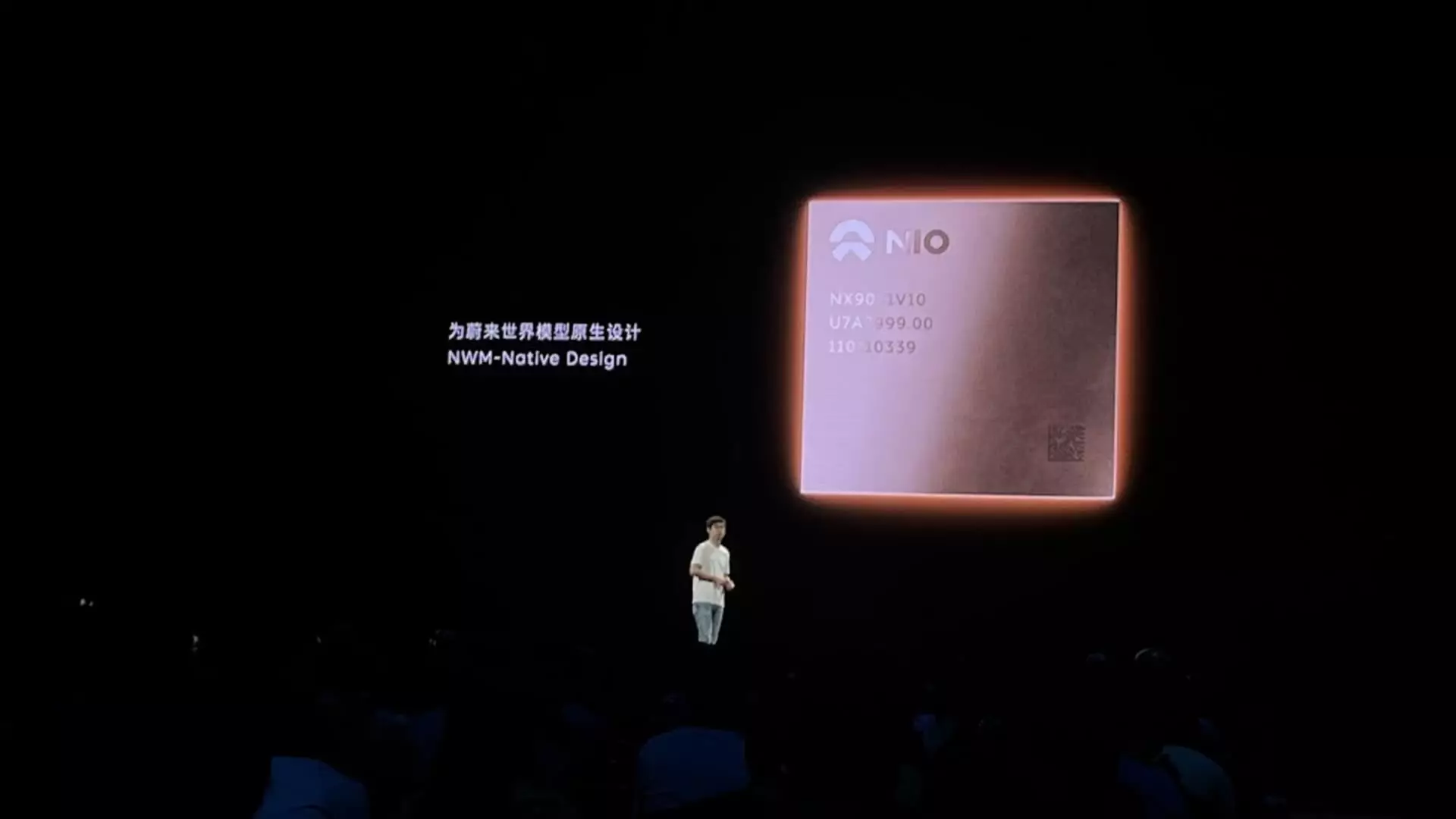The Chinese electric car industry is currently experiencing a significant shift in its approach to technology, specifically in the development of in-house auto chips. Companies like Nio and Xpeng are stepping up their game by designing their own chips rather than relying on established players like Nvidia. This change is not only driven by the desire to differentiate themselves from competitors but also to reduce supply chain risks and customize features to meet specific market demands.
With the success of Tesla’s self-driving technology and the increasing importance of driver-assist features, Chinese automakers are now looking to develop their own chips for intelligent driving systems. By doing so, they can have more control over the design and functionality of their vehicles, giving them a competitive edge in the market.
Companies like Nio have already made significant progress in this area, with the development of the NX9031 chip using 5 nanometer production technology. This represents a breakthrough in the Chinese automotive industry and sets a new standard for advanced driver-assist functions. Similarly, Xpeng is making strides with its Turing chip, renowned for its highly efficient driver-assist capabilities.
Despite focusing on in-house chip development, some companies like Xpeng still maintain partnerships with established chip manufacturers like Nvidia. These collaborations allow them to leverage the expertise and resources of industry leaders while also exploring their own technological advancements. This dual approach enables companies to stay at the forefront of innovation and offer cutting-edge features to their customers.
The close relationship between Chinese electric car companies and chip manufacturers highlights the growing significance of semiconductor technology in the automotive industry. As cars become more connected and autonomous, the demand for advanced chips and processors will continue to rise, driving further innovation and competition in the market.
Government incentives and support have played a crucial role in the rapid growth of electric vehicles in China. From subsidies to infrastructure development, policymakers have created an environment conducive to the adoption of electric cars. This support has enabled companies to invest in new technologies like in-house chips, paving the way for the industry’s future growth and success.
The rise of new standards for tech in cars, such as digital keys and smart connectivity features, further underscores the importance of chip technology in the automotive sector. Companies like BYD and Huawei are leading the way in developing driver-assist systems that enhance safety and convenience for consumers. This shift towards digital innovation is not only reshaping the automotive landscape in China but also influencing global trends in smart mobility solutions.
The emergence of in-house auto chips in China’s electric car industry represents a significant shift towards greater technological independence and innovation. By designing their own chips, companies can differentiate themselves in a competitive market, customize features to meet specific demands, and reduce reliance on external suppliers. This trend is reshaping the automotive industry and paving the way for new standards in smart connected vehicles. As Chinese electric car companies continue to push boundaries and explore new technologies, the future looks bright for innovation and advancement in the industry.

